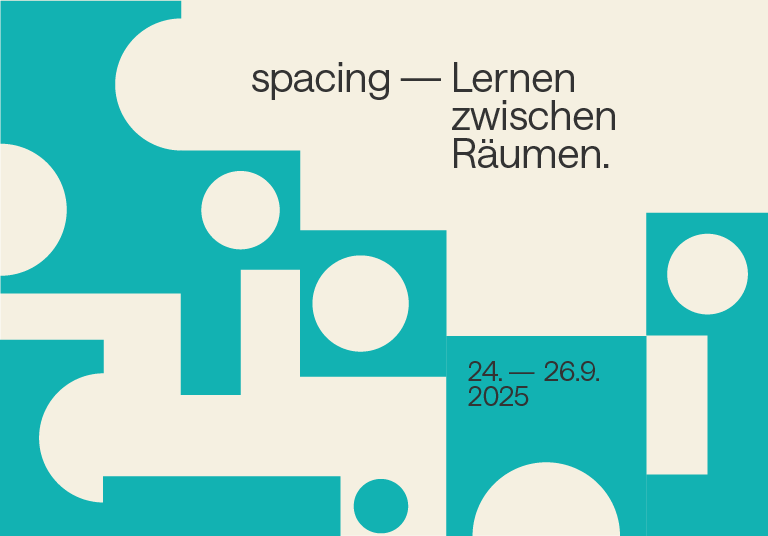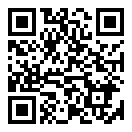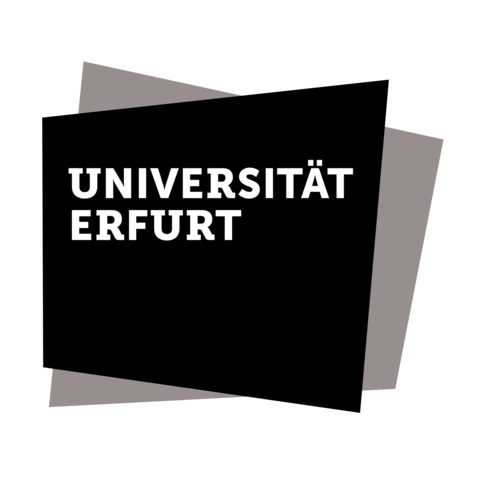
spacing - learning between spaces.

spacing - learning between spaces.
Symposium Lernraum.Bauhaus & eTeach Annual Conference 2025
- 24. - 26.09.2025
- Bauhaus University Weimar
- three-day & hybrid
Details & Contact
The focus is on the question of how physical, digital and hybrid spaces can be designed in such a way that they optimally support learning and teaching.
The three-day conference entitled "spacing - learning between spaces.". Together we will explore how real, virtual and hybrid learning spaces can be designed - through distance and proximity, through structure and openness.
The conference will take place partly hybrid, i.e. online on the campus of the Bauhaus-Universität Weimar and is free of charge. The event is organized by the eTeach-Netzwerk Thüringen and the Lernraum-Bauhaus team together with the Bauhaus-Universität Weimar.
Dr. Nicole Baron
Conference organization as eTeach contact point
Bauhaus University Weimar
+49 03643 58 12 74
Elisa Kirbst
Conference organization as an eTeach specialist unit
for communication and events
+49 (0) 36 43 / 58 12 65
Anne Brannys-Droste
Coordinator of the project and symposium Lernraum.Bauhaus
+49 (0) 36 43 / 58 12 54
spacing@uni-weimar.de
Call for Participation for the eTeach Annual Conference
How can physical, digital and hybrid spaces be designed in such a way that they optimally support learning and teaching? The Lernraum.Bauhaus team and the eTeach Network Thuringia are asking this question and cordially invite you to join them in a discussion. The joint conference of both projects at the Bauhaus-Universität Weimar provides an opportunity: "spacing - learning between spaces.".
"Spacing" here means both designing teaching and learning spaces and creating connections between them that are conducive to learning. The digitalization of teaching and learning formats at universities is increasingly creating so-called intermediate spaces. These spaces must be designed in such a way that they enable flexible, participatory and barrier-free learning.
The eTeach annual conference will explore the challenges and potential of digital, virtual and hybrid spaces and focus on the interplay between space, technology and didactics. The focus will be on practical examples and research approaches that show how digital and analog learning spaces can be combined creatively and in a way that promotes learning. The aim is to design "learning spaces" together with teachers and students.
September 24, 1 p.m. - September 25, 12 p.m.: Symposium Lernraum.Bauhaus
September 25, 1 p.m. - September 26, 3 p.m.: eTeach Annual Conference
The program of the eTeach annual conference is divided into four overarching tracks:
A: AI and teachingLearning spacedesign
B: Media enrichmenttes Testing - New rooms, new formats
C: Learning platforms as digital teaching-learning spaces
D: Scope - Open knowledge, cooperation and future skills
The questions on the tracks listed in this Call for Participation are sample questions and serve as a guide.
The rapid development of AI is fundamentally changing teaching, learning and assessment at universities - both conceptually and structurally. AI-supported technologies are challenging traditional roles and expanding physical, hybrid and virtual learning spaces.
This topic area highlights innovative teaching-learning concepts that use AI for spatial design and discusses ethical, technical and (media) didactic aspects. Contributions on best practices, challenges, critical reflections and future perspectives on the use of AI in different learning environments are welcome.
Impulse questions:
- What new possibilities do AI-supported tools offer for personalized learning opportunities and automated evaluations?
- What skills do students need to acquire in order to integrate AI confidently into learning and work processes?
- How can teaching and learning spaces be designed adaptively and in line with requirements using AI?
- How can AI contribute to the promotion of collaborative and interdisciplinary learning spaces?
- How will learning and learning spaces change as a result of AI?
Digital and multimedia teaching and learning environments broaden the understanding of examinations and open up other possibilities for competence-oriented testing. E-portfolios, interactive tools, video presentations or simulation-based examinations can supplement or even replace traditional examination formats. But what didactic, technical and organizational requirements are necessary for this?
This topic area highlights innovative feedback procedures and examination formats in digital learning spaces. The focus is not only on didactic concepts, but also on technical solutions as well as legal and organizational framework conditions. Contributions are invited that open up new examination spaces - from best practice examples and empirical studies to conceptual considerations.
Impulse questions:
- Why do we give feedback and why do we check - and how are these responses changing as a result of digitalization and AI in particular?
- How can digital examination formats support competence-oriented testing?
- What technical and legal challenges are involved in implementing
- digital tests?
- What experience is there with examination formats such as e-portfolios, video presentations or simulation-based examinations?
- How can digital audits be designed to ensure transparency, fairness and accessibility?
With new didactic approaches such as individualized, project-based or research-based learning, the demands on the design of digital teaching and learning spaces are increasing. Physical and digital learning spaces should be coordinated in such a way that they interlock in a didactically meaningful way.
Today, learning platforms are far more than just places to store materials - they are interactive environments that enable communication, collaboration and personalized learning processes.
This track focuses on questions relating to the use and design of learning platforms. Contributions are invited that open up learning platforms and other digital tools as teaching and learning spaces - from best practice examples to empirical studies and conceptual considerations.
Impulse questions:
- How can universities strengthen student participation across physical, hybrid and digital spaces?
- How can digital teaching and learning spaces be designed and used to promote motivation, collaboration, equal opportunities and active participation?
- What challenges and opportunities arise in the area of conflict between learning analytics, data protection and personalized learning?
- How can the potential of digital teaching and learning spaces be enhanced by AI to promote learning?
- What comes after Moodle & Co.
Universities are more than just teaching and learning institutions - they offer scope for new ideas to emerge, existing structures to be questioned and forward-looking approaches to be tested. New ideas are best generated when we are confronted with new perspectives and have easy access to knowledge.
This topic area is dedicated to innovative concepts and open questions relating to future and sustainability skills and (international) university cooperation.
Contributions are invited that provide insights into best practices, initiate critical reflections or deliver empirical findings on these topics.
Impulse questions:
What scope is already being used successfully?
Which teaching formats currently deal explicitly with the "future"?
Which skills are crucial in a changing world of learning and work - and where are the limits of the future skills debate?
How can university cooperation be promoted through hybrid teaching? Where are the limits?
What would characterize a digital Thuringian or European university?
Call for Participation Symposium Lernraum.Bauhaus
Designing learning spaces
expand
tell
In "Lernraum.Bauhaus", we are researching the design and use of hybrid learning spaces at the Bauhaus-Universität Weimar. In our prototype learning studio, we are testing didactic and technical solutions for interdisciplinary use in terms of their practical suitability and user experience. Aesthetics and atmosphere play a key role here. The result is a place where we enjoy learning and where we can experiment with different scenarios - from hybrid courses in international teaching collaborations to object transfer in hybrid settings and jazz concerts. We transfer the findings from these diverse uses to other spaces in order to facilitate connections between different locations - locally, nationally and internationally.
Learning between spaces" is the focus of the Lernraum.Bauhaus-Symposium 2025, which is about combining different spatial concepts using technical and didactic methods as well as human encounters in these "wonder spaces".
For our creative supporting program, we would like to offer a platform to everyone who designs, uses, dreams and tells stories about (hybrid) learning spaces: Share your projects and visions, your experiences and memories with us.
The following questions could be addressed:
- What was the most important learning space during my school and university years and to what extent does this experience of space still shape my thoughts and actions today?
- What was the most amazing spatial experience in my own teaching?
- What would my ideal teaching space look like? What (minimal) interventions have I made to significantly change a/my teaching space?
- What do I do as a student to adapt a learning space to my needs?
- What influence do elements such as light, furniture and sound have on the atmosphere in my desired room or a room that I have helped to redesign?
- How can the innovation potential of the space be made visible and tangible?
- How does a teaching space relate to its surroundings, to the architecture, but also to the philosophy of the institution?
- What social futures do I associate with (learning) spaces?
Possible formats for your spatial narratives are visualizations, filmic contributions, (physical and virtual) models or short essays (max. 2 A4 pages). The accepted contributions will be presented, highlighted and reflected upon in an accompanying exhibition during the symposium and the subsequent annual conference of the eTeach Network Thuringia. A guided tour of the exhibition is planned during the symposium, in which we ask all contributors to briefly describe their contribution.
Organizational matters
Target group
Teachers, students and graduates from all departments and types of university are invited to participate. In addition, contributions are welcome from employees of all universities from the fields of higher education didactics, course development, science management, student service areas and researchers from the field of educational science. We also welcome participation and contributions from university management and representatives from politics and society.
Formats
You can submit your contributions in German or English for various formats. Please indicate your preferred format with your submission. Submissions must be in the form of an abstract (maximum length 200 words). We reserve the right to assign your contribution to a different event format together with you for the purposes of program planning.
Impulses: In the impulses, experiences and application scenarios from teaching practice are presented and jointly reflected upon in a lecture-oriented manner. (Duration: 10-15 min + discussion)
Workshop: This format offers the opportunity for collaborative, interactive and practice-oriented group work. Here you have the opportunity to work intensively on specific teaching and learning projects or concrete issues. By exchanging knowledge within the group, you can not only benefit from the experience of others, but also actively contribute to the further development of project ideas. (Duration: 90 minutes)
Theme islands: The theme island format promotes an interactive exchange between the participants. After a 5-minute thematic impulse, your projects, innovation ideas and experience reports are given space for a collegial exchange. (Duration: 30 minutes)
Poster session with Pitch: Posters on ongoing or completed (teaching) projects can be presented here. The poster session begins with a one-minute pitch. This is followed by the opportunity to exchange ideas and discuss the respective posters in more detail. (Duration: 60 minutes)
Important dates
April 22, 2025: Start of the submission phase
June 1, 2025: End of the submission deadline for all entries
June 30, 2025: Feedback on the submissions
July 21, 2025: Publication of the preliminary program and start of registration for the conference
September 23, 2025: End of the registration period
September 24 and 25: Bauhaus Learning Space Symposium
September 25 and 26: eTeach annual conference at the Bauhaus-Universität Weimar
We look forward to your contributions and hope to see you at the eTeach annual conference in Weimar!
If you have any questions regarding content or logistics, please send us an e-mail:
spacing@uni-weimar.de
Date
- 24. - 26.09.2025
Time
- 7:00 - 13:00
Local Time
- Timezone: America/New_York
- Date: 24. - 26.09.2025
- Time: 3:00 - 9:00
Location
Bauhaus University Weimar


